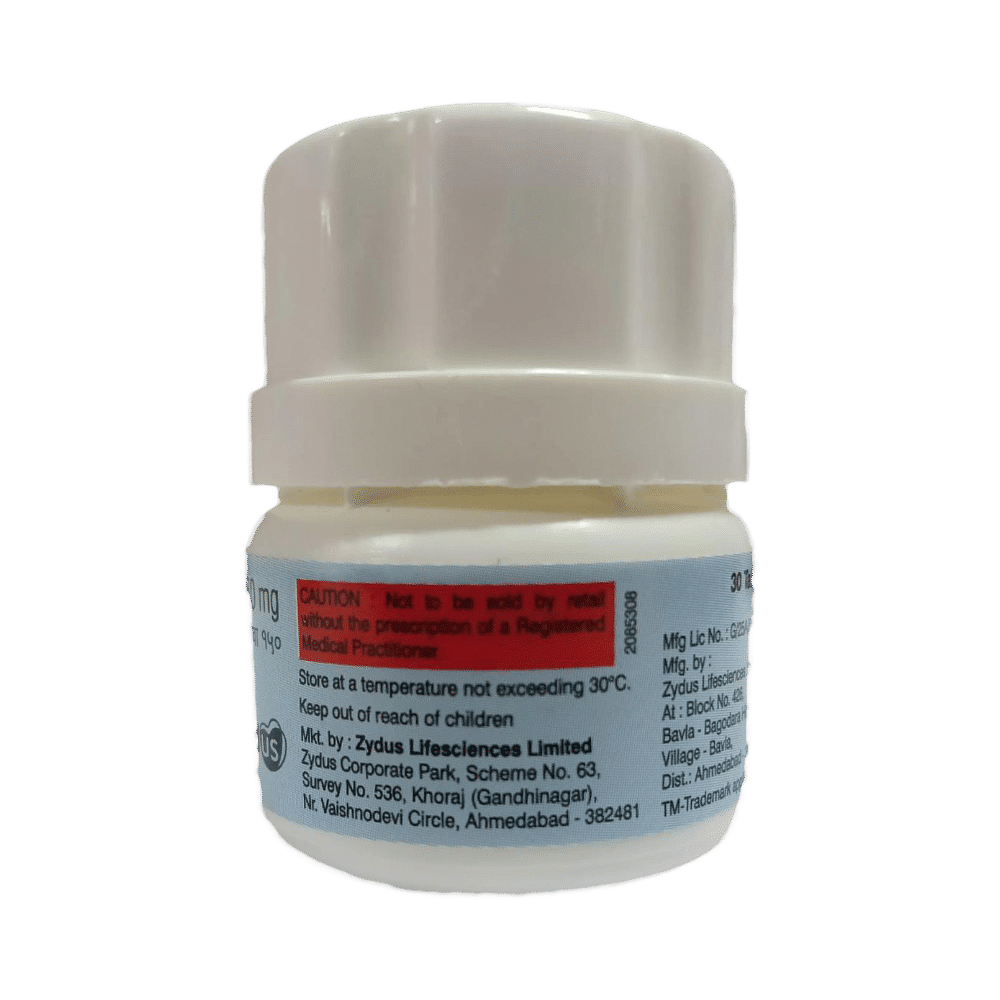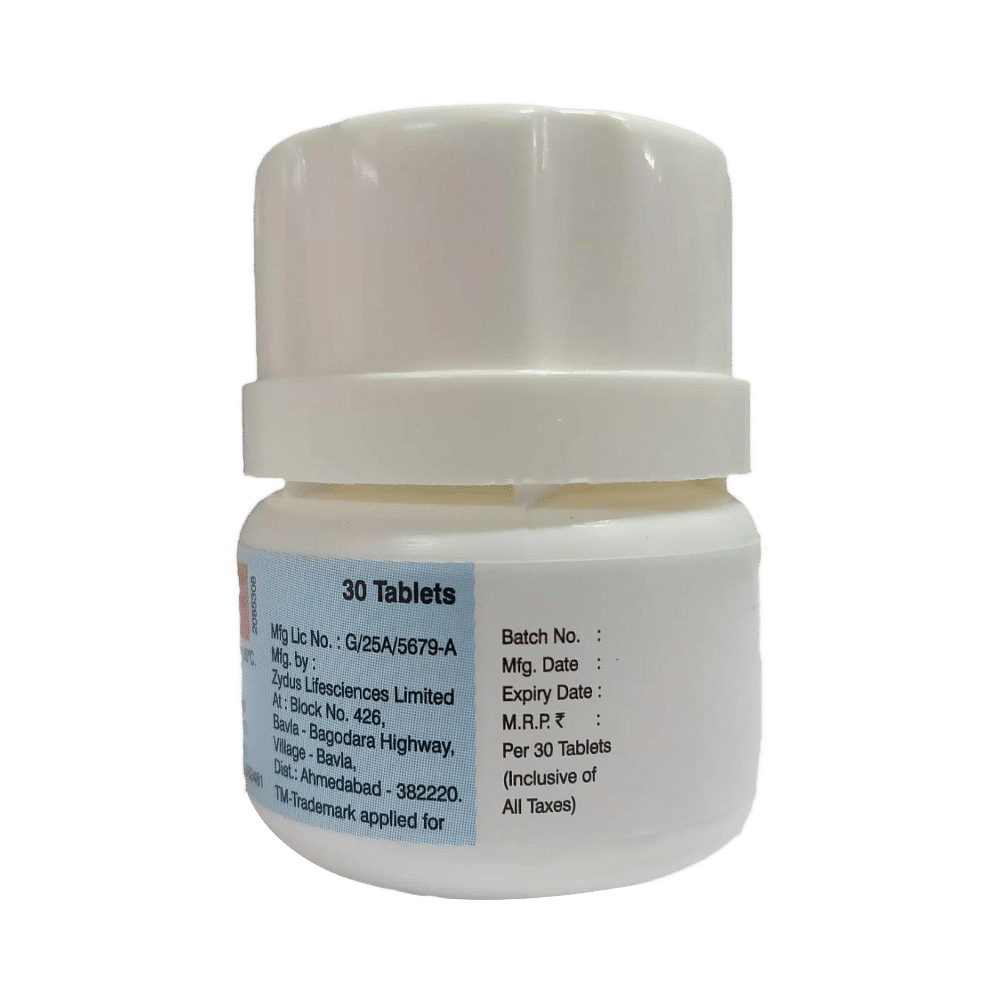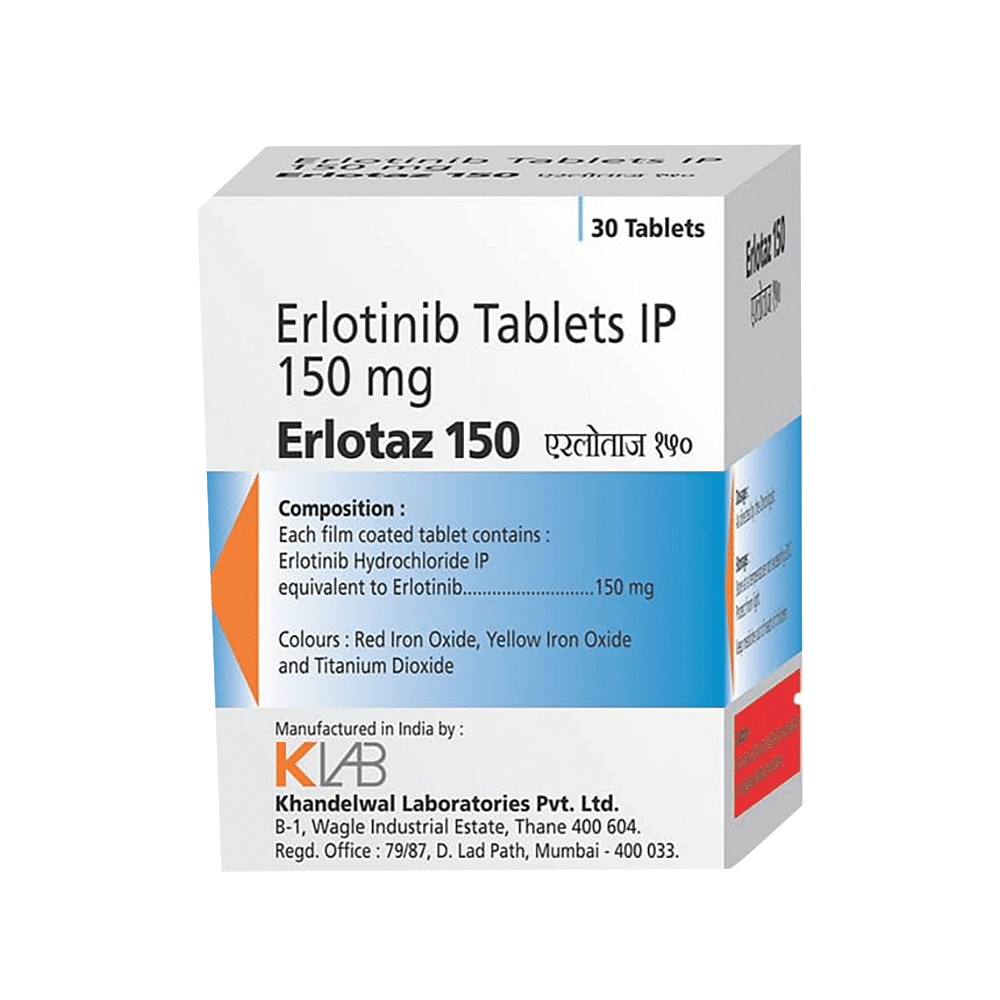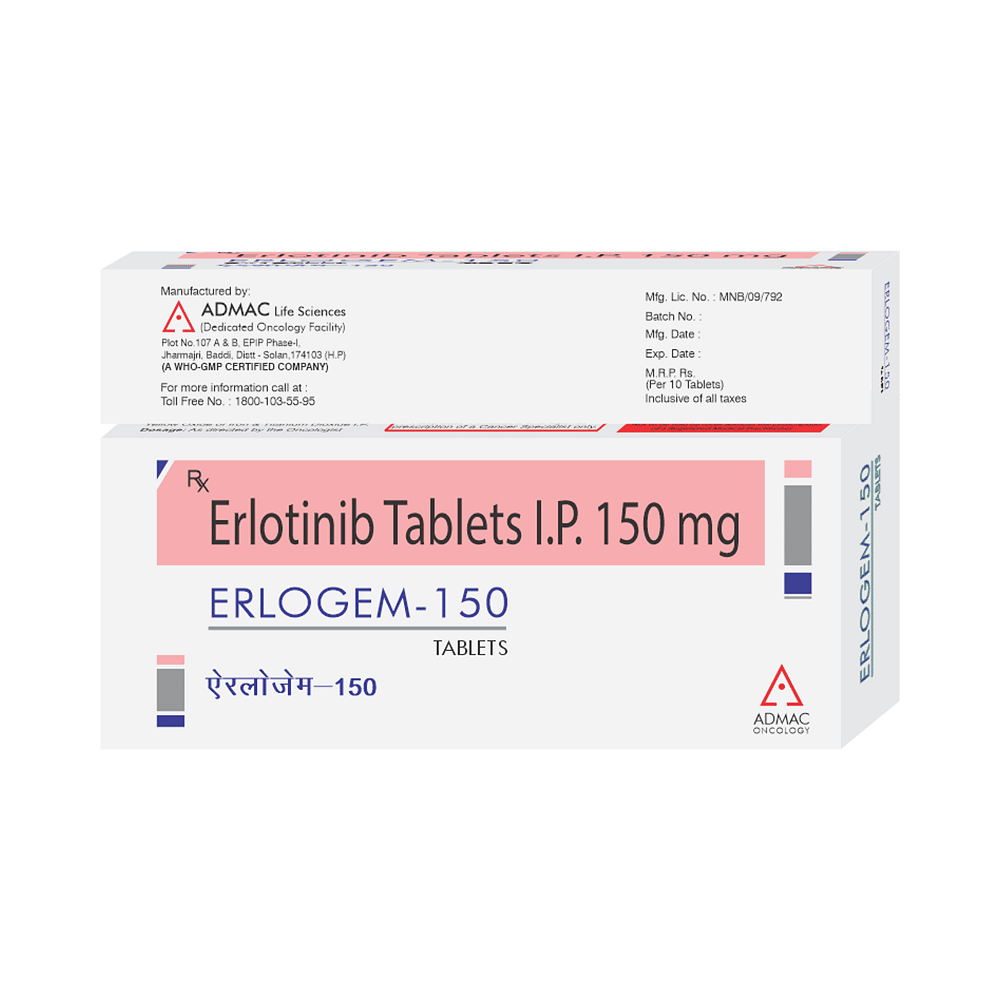


Zyceva 150 Tablet
Manufacturer
Zydus Cadila
Salt Composition
Erlotinib (150mg)
Key Information
Short Description
Zyceva 150 Tablet is used in the treatment of non-small cell lung cancer and pancreatic cancer.
Dosage Form
Tablet
Introduction
Zyceva 150 Tablet should be taken on an empty stomach or should be taken one hour before or 2 hour after meal. You should continue to take it as long as your doctor advises it. The duration of treatment varies according to your needs and response to treatment. You should take it exactly as your doctor has advised. Taking it in the wrong way or taking too much can cause very serious side effects. It may take several weeks or months for you to see or feel the benefits but do not stop taking it unless your doctor tells you to.
Directions for Use
Take this medicine in the dose and duration as advised by your doctor. Swallow it as a whole. Do not chew, crush or break it. Zyceva 150 Tablet is to be taken empty stomach..Take this medicine in the dose and duration as advised by your doctor. Swallow it as a whole. Do not chew, crush or break it. Zyceva 150 Tablet is to be taken empty stomach.
How it works
Zyceva 150 Tablet is an anti-cancer medication. Epidermal growth factor receptors (EGFR) are expressed on the lung cancer cell surfaces that modulate their growth. This medicine works by binding the chemical messenger EGFR hence inhibits the cancer signaling pathways mediated by EGFR. This is how it restricts further growth of the cancer cells..Zyceva 150 Tablet is an anti-cancer medication. Epidermal growth factor receptors (EGFR) are expressed on the lung cancer cell surfaces that modulate their growth. This medicine works by binding the chemical messenger EGFR hence inhibits the cancer signaling pathways mediated by EGFR. This is how it restricts further growth of the cancer cells.
Quick Tips
Zyceva 150 Tablet helps treat non-small cell lung cancer that is locally advanced or has spread to other areas of the body. It should be taken 1 hour before or 2 hours after the meal. It makes your skin sensitive towards sunlight. Apply sunscreen or wear protective clothing while going out. It is advisable to avoid smoking while taking this medicine as it makes the drug ineffective and requires dose adjustment. It is not recommended during pregnancy or while breastfeeding.
Related Medicines

Erlocip 150 Tablet

Erloday 150mg Tablet

Erlofast 150mg Tablet

Zyceva 150mg Tablet

Tarceva 150mg Tablet

Erlotaz 150 Tablet

Erlot 150mg Tablet

Erlomy 150mg Tablet

Erlons 150mg Tablet

Erlogem 150 Tablet
Frequently asked questions
How should Zyceva 150 Tablet be taken?
Zyceva 150 Tablet is a pill to be taken by mouth, once daily without food as prescribed by your doctor. It's important to take it empty stomach, at least one hour before or two hours after meals. It's advisable to take it the same time each day for easier memory.
Is Zyceva 150 Tablet a chemotherapy drug?
Zyceva 150 Tablet is not a conventional chemotherapy medication. It belongs to a class of medications called kinase inhibitors. It works by blocking the action of an abnormal protein that signals cancer cells to multiply, which helps slow or stop the spread of cancer cells.
How long can I take Zyceva 150 Tablet?
You need to take Zyceva 150 Tablet every day as prescribed by your doctor. Treatment duration varies depending on individual needs and response.
Does smoking interfere with Zyceva 150 Tablet?
Yes, smoking can negatively impact the effectiveness of Zyceva 150 Tablet. It may significantly reduce its efficacy. It is recommended to quit smoking before starting Zyceva 150 Tablet. Your doctor will adjust your dose if you continue smoking or experience changes in smoking habits.
What should I do if I get a rash while taking Zyceva 150 Tablet?
A rash is a common side effect of Zyceva 150 Tablet, but you shouldn't stop taking it because of this. Consult your doctor for treatment guidance and avoid sun exposure, use sunscreen, and wear protective clothing.
When can I plan pregnancy if I am taking Zyceva 150 Tablet?
Avoid pregnancy while receiving Zyceva 150 Tablet. If you are a woman of childbearing age, use effective contraception during treatment. It's recommended to avoid pregnancy for at least one month after your last dosage.
Does Zyceva 150 Tablet affect my eyes?
Zyceva 150 Tablet can cause conjunctivitis and dry eyes. If you experience sudden redness, pain in the eye, increased watering, blurred vision, or sensitivity to light, inform your doctor immediately. Urgent medical treatment may be necessary.
When should I call my doctor during treatment with Zyceva 150 Tablet?
Call your doctor if you experience difficulty breathing associated with cough or fever, severe or ongoing diarrhea, loss of appetite, nausea and vomiting. Consult your doctor immediately if you develop acute or worsening redness and pain in the eye, increased eye-watering, blurred vision, and/or sensitivity to light.


